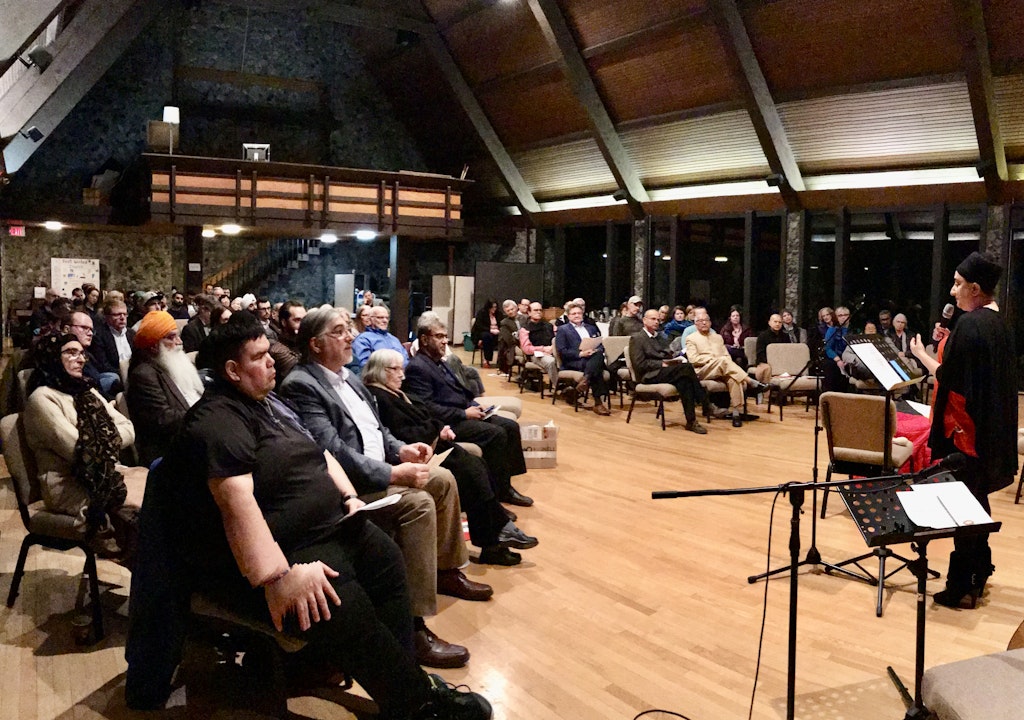Throughout the annals of history, the specter of racism has loomed large over societies, creating divisions among people based on perceived differences. In America, a nation ostensibly founded on the principles of liberty and equality, the pervasiveness of racism continues to present formidable challenges. However, the Baha’i teachings offer a transformative lens through which to view this pervasive issue. Central to these teachings is the recognition of the inherent oneness of humanity—an understanding that transcends racial boundaries and speaks to the collective advancement of mankind.
The Baha’i Faith postulates that humanity is a single entity, fundamentally interwoven. This cosmopolitan perspective is not merely philosophical; it harbors profound implications for addressing the racism endemic in American society. Baha’u’llah, the founder of the Baha’i Faith, proclaimed that all people are created equal and that prejudice, in any form, is a bane on the collective spirit of humankind. This declaration serves as both a compass and a clarion call—a summons to rise above divisive tendencies.
Central to the Baha’i narrative is the premise that true social progress can only be achieved through unity. This unity is not a homogenization of cultures or identities but rather a celebration of diversity within a cohesive whole. The Baha’i perspective invites individuals to view diversity as an asset rather than an obstacle. This paradigm shift in perception can cultivate a deeper understanding of the complexities surrounding racial dynamics in America.
The Baha’i teachings advocate for the elimination of all forms of prejudice, emphasizing that such biases are rooted in ignorance and misunderstanding. The nuances of American racism often stem from a lack of empathy and an incomplete understanding of the lived experiences of marginalized communities. Baha’is are encouraged to utilize education as a formidable tool for dismantling these misconceptions. By fostering spaces for dialogue and learning, Baha’is can cultivate environments in which individuals are empowered to confront their own biases and assumptions.
Furthermore, the Baha’i writings elucidate the importance of collective action. Addressing systemic racism requires concerted efforts by individuals and groups across society. Baha’is are called to engage actively in social discourses, advocating for justice and equality. This engagement does not operate in isolation but builds upon collaborative frameworks that include various factions of society. A collective approach reinforces solidarity, illustrating that overcoming racism is not merely a task for the oppressed but a societal imperative.
The Baha’i community also emphasizes the need for spirituality in the quest for racial equity. Spirituality serves as a unifying force, intrinsically linked to the core tenets of justice and equity. Through spiritual practices such as prayer and meditation, individuals are provided with the tools to cultivate compassion and understanding. This spiritual grounding enables a profound connection with others, fostering a climate in which biases can be addressed with sensitivity and care.
The Baha’i perspective also underscores the significance of recognizing the historical underpinnings of racism in America. Acknowledgment of past injustices is crucial in forging pathways toward healing. In the wake of historical transgressions, Baha’is are encouraged to embrace a narrative of reconciliation, which simultaneously honors those who have been marginalized and promotes a vision for a more equitable future. This approach resonates with the broader Baha’i commitment to justice, emphasizing the necessity of addressing historical grievances as a catalyst for societal transformation.
Moreover, the concept of “race” itself—that artificial categorical sculpture woven into society—deserves scrutiny through a Baha’i lens. The teachings elucidate race as a social construct, highlighting the fluidity of identity. This understanding prompts a reconceptualization of how individuals classify themselves and others, urging a more nuanced appreciation of the myriad factors that contribute to identity. Such a perspective not only fosters acceptance but also dismantles the traditional hierarchies that contribute to racial discrimination.
Importantly, the Baha’i community actively engages in various initiatives aimed at addressing social injustices. The Baha’i teachings advocate for economic, social, and educational equality, reinforcing the interconnectedness of these domains in combating racism. Through community service, educational outreach, and advocacy efforts, Baha’is seek to promote transformative change—demonstrating that the realization of true racial equality is an achievable, albeit multifaceted, goal. This proactive stance encourages all individuals to examine their roles within the structures of racism, urging active participation in the endeavor for justice.
In conclusion, the Baha’i perspective offers a profound and compelling framework for addressing racism in America. By emphasizing the inherent oneness of humanity, advocating for justice, and utilizing education as a catalyst for change, Baha’is not only confront the prejudices of the present but also lay the groundwork for a more equitable future. The teachings not only underscore the imperative of unity but also challenge individuals to reassess their views about race and ethnicity. Ultimately, the Baha’i commitment to the oneness of humanity and the elimination of prejudice stands as a testament to the possibility of healing, understanding, and transformation in the face of adversity. Through collective effort, empathy, and spiritual awareness, the journey towards racial harmony becomes not just an aspiration, but an attainable reality.
